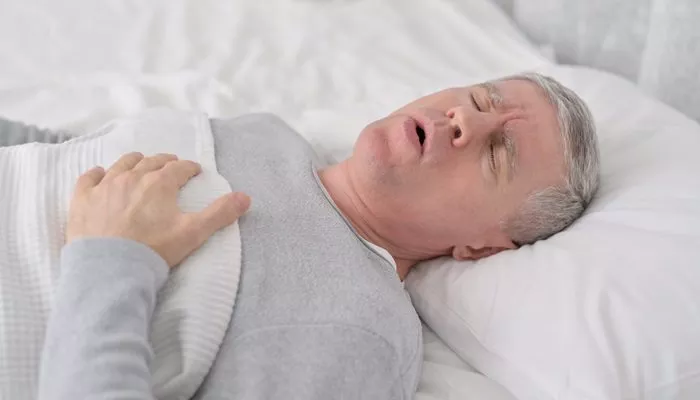Heart fibrillation, particularly atrial fibrillation (AFib), is a condition where the heart’s upper chambers (atria) beat irregularly and out of sync with the lower chambers (ventricles). This can lead to various symptoms, including palpitations, shortness of breath, and fatigue.
Many individuals notice that these symptoms can become more pronounced when lying down. This article explores the reasons behind this phenomenon, detailing the physiological and environmental factors that contribute to heart fibrillation during this position.
Physiological Changes When Lying Down
When a person lies down, several physiological changes occur in the body that can influence heart function:
Blood Distribution: Lying down alters the distribution of blood throughout the body. In a supine position, blood flow to the heart increases due to gravity, which can lead to increased pressure within the heart chambers. This change may provoke or exacerbate AFib symptoms in susceptible individuals.
Vagal Tone: The vagus nerve plays a crucial role in regulating heart rate. When lying down, particularly during sleep, there is often increased vagal tone, which can slow the heart rate. For some individuals, this heightened vagal activity can trigger AFib episodes.
Increased Awareness: The quieter environment when lying down allows individuals to become more aware of their heartbeat. This heightened awareness can make palpitations or irregular beats more noticeable than during active hours.
Impact of Sleeping Position
The position in which a person sleeps can significantly affect heart function:
Left Side Sleeping: Research indicates that sleeping on the left side may worsen AFib symptoms for some individuals. This position can stretch the atrium and pulmonary veins, potentially triggering episodes of AFib due to increased pressure on these structures. The proximity of the heart to the chest wall in this position may amplify sensations of palpitations.
Right Side Sleeping: Conversely, sleeping on the right side may exert less pressure on the heart and could be more comfortable for some people with AFib.
Back Sleeping: Lying on the back may also increase the risk of sleep apnea, a condition that has been linked to higher rates of AFib due to intermittent breathing interruptions and consequent oxygen deprivation during sleep.
Sleep Disorders And Their Connection to AFib
Several sleep disorders are known to exacerbate or trigger AFib symptoms:
Sleep Apnea: Obstructive sleep apnea (OSA) is characterized by repeated pauses in breathing during sleep. This condition can lead to significant drops in oxygen levels and increased stress on the heart, making AFib episodes more likely.
Individuals with OSA are two to four times more likely to develop AFib compared to those without it.
Insomnia: Poor sleep quality and insomnia have been correlated with an increased risk of developing AFib. Disrupted sleep patterns can lead to heightened stress responses in the body, further complicating heart health.
Psychological Factors
Psychological stress and anxiety can also play a significant role in triggering AFib symptoms when lying down:
Increased Anxiety: The act of lying down often leads individuals to reflect on their health, which can heighten anxiety levels. This anxiety may manifest as physical symptoms, including palpitations or irregular heartbeats.
Stress Response: When stressed, the body releases hormones such as adrenaline that can increase heart rate and provoke arrhythmias. The quietness of nighttime can amplify these feelings as there are fewer distractions from bodily sensations.
Lifestyle Factors
Certain lifestyle choices can contribute to an increased likelihood of experiencing AFib at night:
Caffeine and Alcohol Consumption: Consuming stimulants like caffeine or depressants like alcohol close to bedtime can trigger palpitations. Caffeine raises heart rate and may cause extra beats, while alcohol can disrupt sleep patterns and exacerbate underlying conditions like sleep apnea.
Dietary Habits: Eating large meals or consuming heavy foods before bed can lead to digestive discomfort that may disturb sleep and provoke palpitations. Maintaining a balanced diet is essential for overall cardiovascular health.
Dehydration and Electrolyte Imbalance: Not drinking enough water or having low electrolyte levels (potassium, magnesium) can lead to irregular heart rhythms. Dehydration increases blood viscosity and places extra strain on the heart.
Conclusion
Heart fibrillation when lying down is influenced by a complex interplay of physiological changes, sleeping positions, psychological factors, and lifestyle choices. Understanding these elements is crucial for managing symptoms effectively. Individuals experiencing frequent or severe AFib should consult healthcare professionals for tailored advice and potential treatment options.
To minimize symptoms associated with lying down:
Experiment with different sleeping positions.
Address any underlying conditions such as sleep apnea.
Maintain good sleep hygiene.
Manage stress through relaxation techniques.
By taking proactive measures, individuals with AFib can improve their quality of life and reduce the frequency of episodes experienced while lying down.
Related topics:
- Does Walking Help Tachycardia?
- What Can Cause Heart Palpitations at Rest?
- Is Torsades De Pointes A Vf or Vt?

